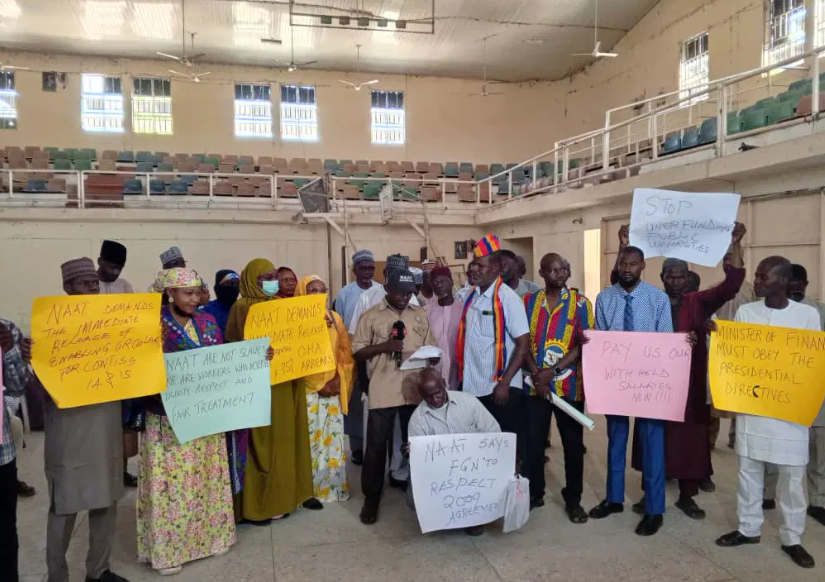The National Association of Academic Technologists (NAAT) has given the Nigerian government a 14-day ultimatum, warning of a nationwide strike if their demands are not met. This decision comes as tensions rise within Nigeria’s academic community, with the Academic Staff Union of Universities (ASUU) also planning a strike.
NAAT’s demands include the immediate payment of withheld salaries, the full implementation of the 2009 FGN/NAAT Agreement, the settlement of arrears for earned allowances, and the upgrading of public university laboratories. The union is particularly frustrated by the government’s delay in addressing these critical issues.
Ibeji Nwokoma, the President of NAAT, voiced his frustration during a peaceful protest at the University of Maiduguri in Borno State. He criticized the government’s inaction, specifically calling out the Minister of Finance and Coordinating Minister of the Economy for not effecting the necessary approvals. Nwokoma questioned the government’s sincerity in resolving these problems and alleviating the suffering of NAAT members and the broader educational community.
Yusuf Bulus, the National Internal Auditor for NAAT, urged stakeholders to intervene and prevent the strike, stressing the negative impact it would have on students, research, and laboratory activities. Bulus warned that the strike could disrupt the academic calendar and hinder ongoing research at Nigerian universities.
NAAT has set a deadline of November 13 for the government to meet its demands. If the deadline passes without action, the union has vowed to take industrial action. A strike by NAAT, along with ASUU, could lead to significant disruptions in the Nigerian education system, affecting both students and the quality of education.
With this ultimatum, the Nigerian government faces increased pressure to resolve the disputes and prevent a nationwide strike that could damage the academic sector. The outcome of this situation will play a key role in shaping the future of higher education in Nigeria, with long-term consequences for students, educators, and the country’s development.





